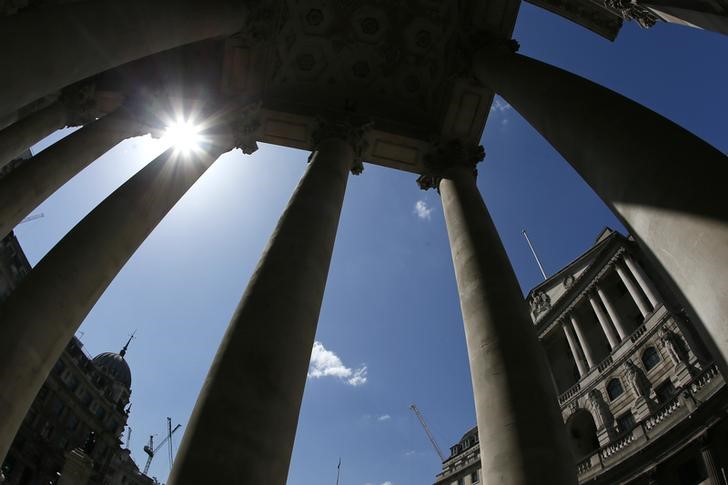LONDON (Reuters) - Bank of England policymakers warned this month Britain could be affected when other countries start to raise interest rates, but that the outlook for British rates hinged on domestic inflation.
Wednesday's minutes of the BoE Monetary Policy Committee's meeting ending June 3 showed all nine members voted to hold interest rates at 0.5 percent, although as in previous months, two members described their decision as "finely balanced".
MPC members noted that headwinds to global growth had started to ease, meaning that some countries would likely start to normalise monetary policy. Many economists expect the United States to raise interest rates later this year.
"These policies could have international spillovers," the minutes said.
"However, the Committee agreed that the path for UK monetary policy would depend on the prospects for inflation in the United Kingdom and would not be determined by the actions of other central banks."
June's minutes dropped references in previous months to a "range of views" about the likely path of British interest rates, and the MPC said the economic outlook had changed little over the month.
Consumer spending was the main topic of discussion this month, with some members surprised that low oil prices had not had a bigger impact.
Other members said the impact was likely to come later and could build over time.
The MPC also said that some mortgage rates had hit a record low.
"In this context, the Committee noted that the tools available to the Bank's Financial Policy Committee and other regulators were the first line of defence against any financial stability risks that might arise in the housing market," the minutes said.
British inflation turned positive again in May after dipping below zero in April for the first time in 55 years, suggesting the country's flirtation with deflation was only brief.
Last week MPC member Ian McCafferty said the time for raising interest rates was getting closer, and economic data over the next few months would help determine exactly when that will be.
The BoE has focussed more on wage growth as it considers when to start raising rates. Data due to be released at the same time as the minutes on Wednesday are expected to show earnings growth picked up in the three months to April.
Last month, BoE Deputy Governor Minouche Shafik said she saw "encouraging" signs from labour market data, adding that her main motive for voting to keep rates on hold was the risk that the effects of the financial crisis might be more permanent than thought.
A Reuters poll published on Monday suggested the BoE will probably not raise interest rates until early next year.
